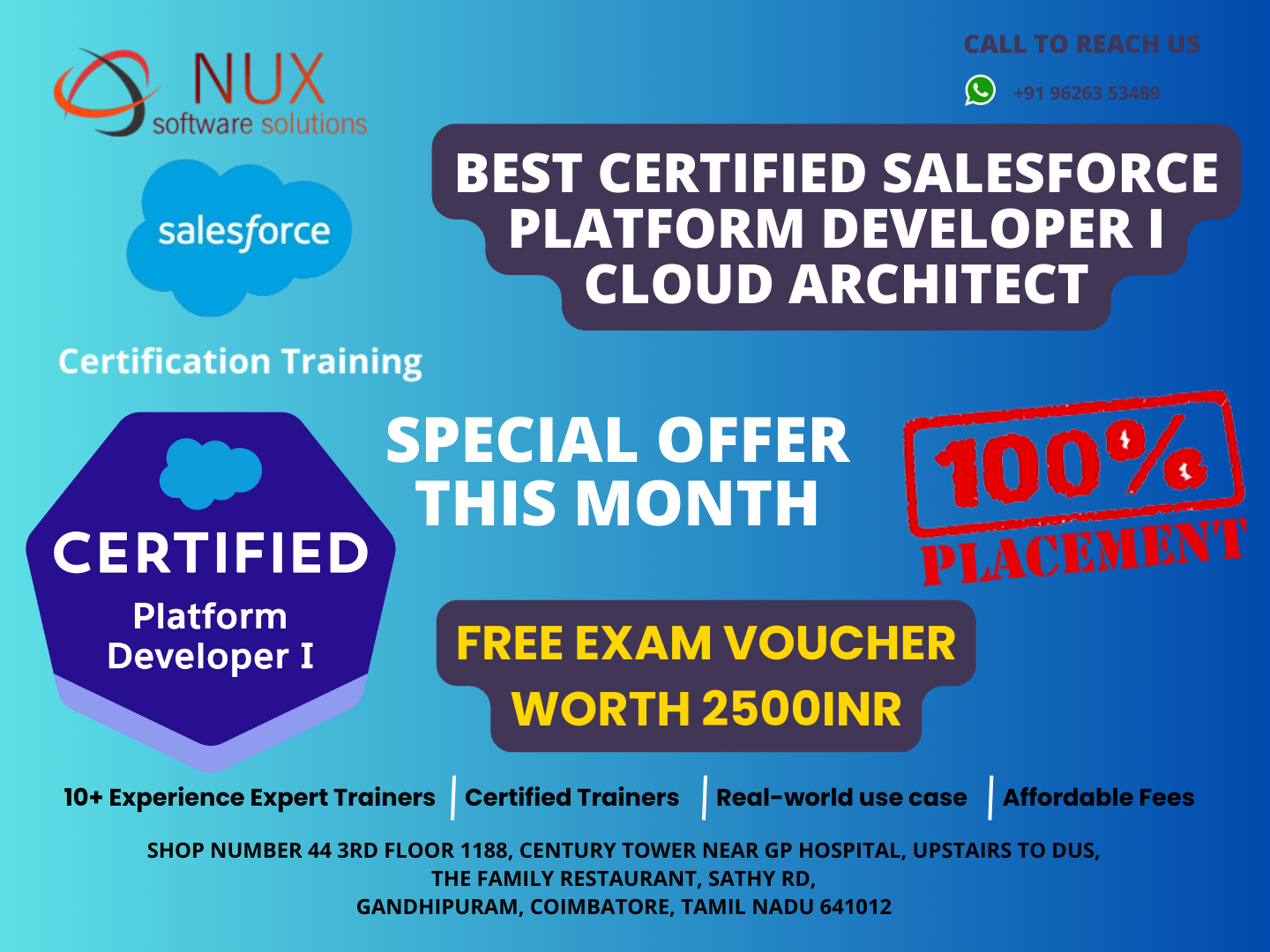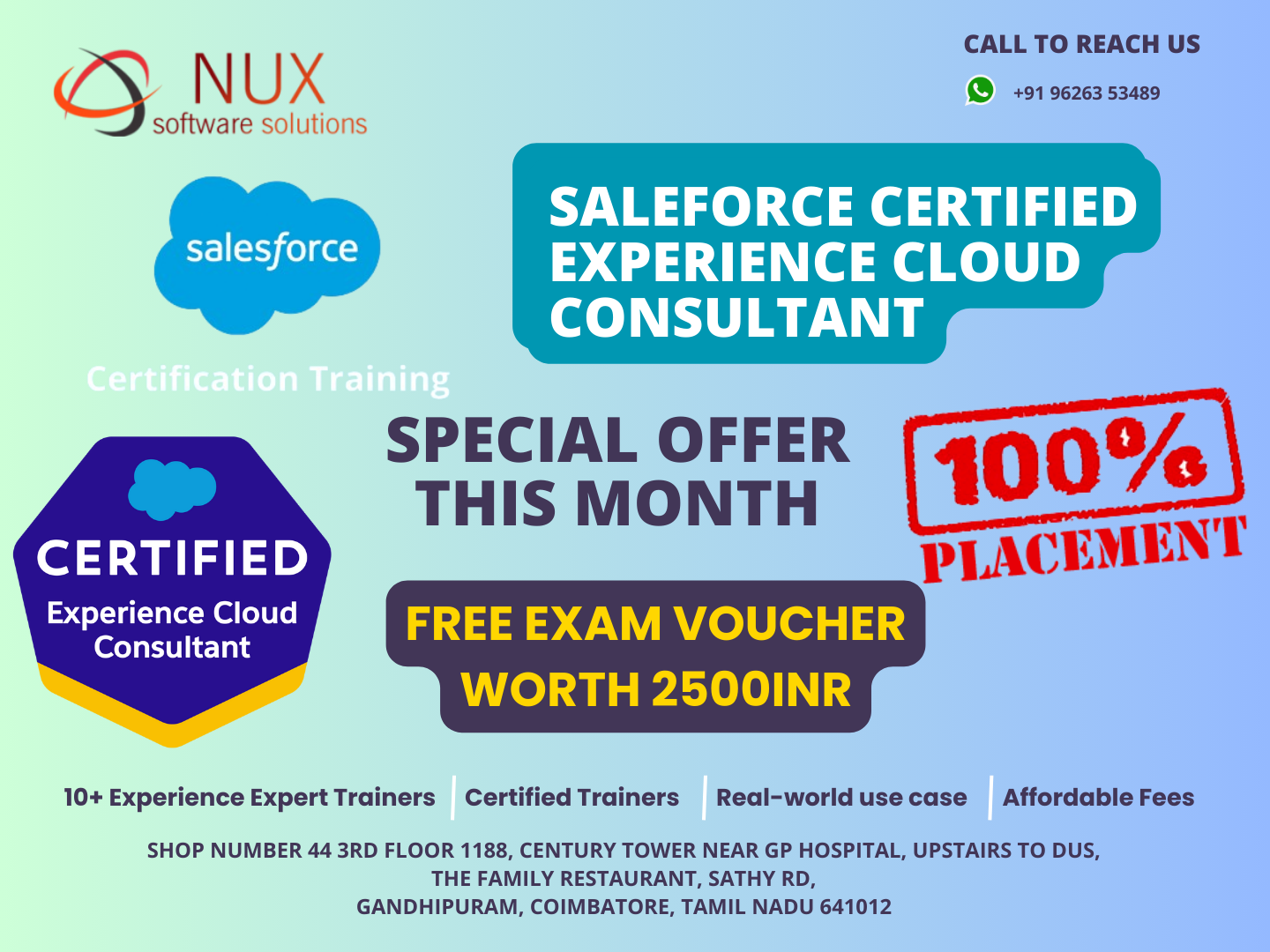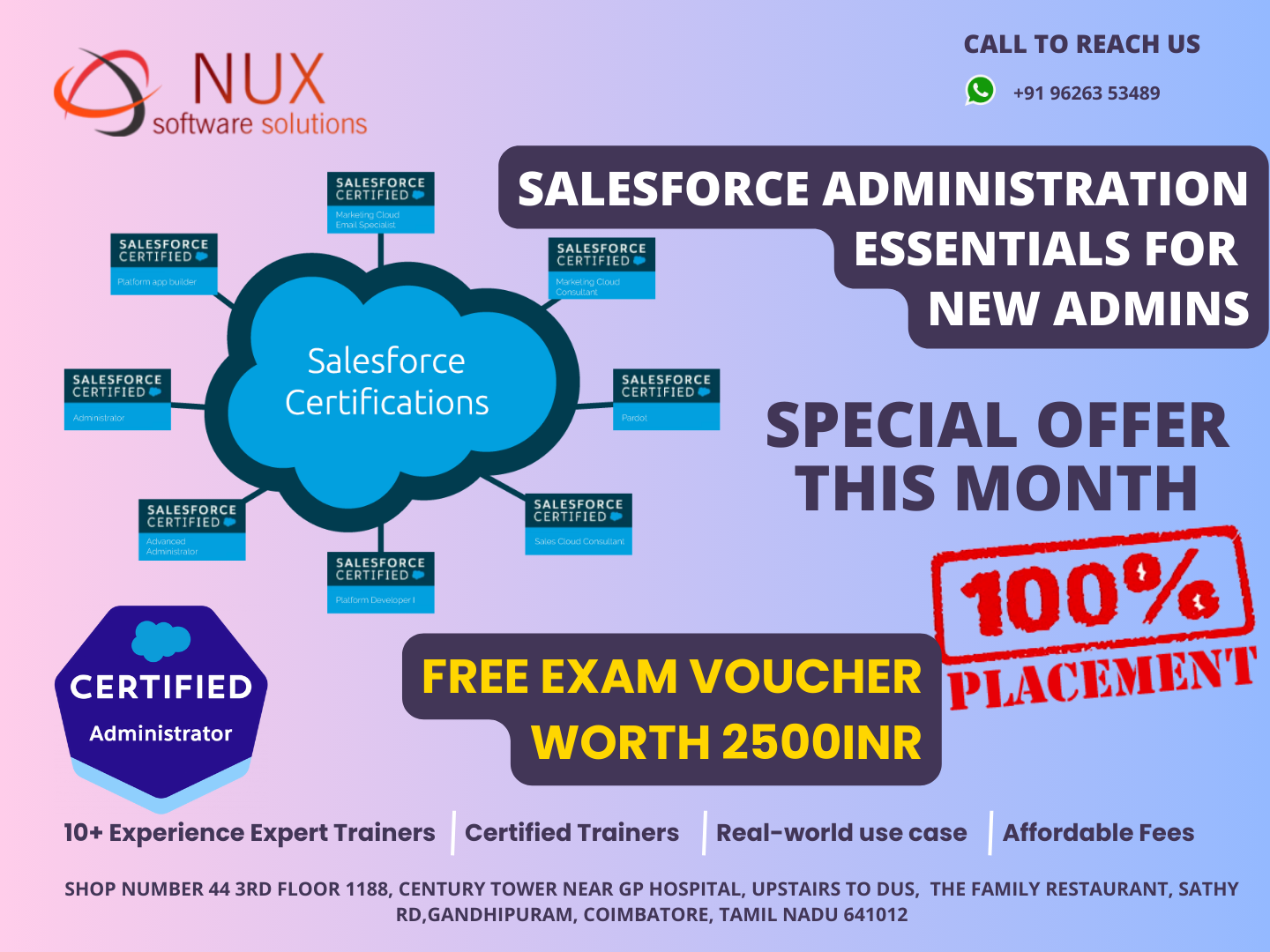Certified Salesforce Platform Developer I cloud architect


Nux Software Training & Certification Solutions in Coimbatore seems to offer excellent Certified Salesforce Platform Developer I training courses. With advanced programs, industry-expert trainers, and a conducive training center environment, they prioritize delivering a high-quality learning experience. The accessibility of labs 24/7 from anywhere adds to the convenience and flexibility of the training. The presence of international expert trainers with real-time industry experience enhances the overall educational value. The emphasis on innovative learning methods and flexibility in training programs demonstrates an understanding of individual needs and career aspirations. It appears to be an ideal destination for professional, individual, corporate, live project, and industrial training, promising significant career growth!
Nux Software Training & Certification Solutions in Coimbatore seems to offer excellent Certified Salesforce Platform Developer I training courses. With advanced programs, industry-expert trainers, and a conducive training center environment, they prioritize delivering a high-quality learning experience. The accessibility of labs 24/7 from anywhere adds to the convenience and flexibility of the training. The presence of international expert trainers with real-time industry experience enhances the overall educational value. The emphasis on innovative learning methods and flexibility in training programs demonstrates an understanding of individual needs and career aspirations. It appears to be an ideal destination for professional, individual, corporate, live project, and industrial training, promising significant career growth
Course Syllabus
Certified Salesforce Platform Developer I Syllabus
Developer Fundamentals - 23%
- Understand multi-tenant concepts and design frameworks, such as MVC architecture and Lightning Component Framework.
- Given a scenario, identify common use cases and best practices for declarative versus programmatic customizations, including governor limits, formula fields, and roll-up summaries.
- Given a scenario, determine, create, and access the appropriate data model including objects, fields, relationships, and external IDs.
- Given a scenario, identify the options and considerations when importing and exporting data into development environments.
Process Automation and Logic - 30%
- Identify the capabilities of the declarative process automation features.
- Declare variables, constants, methods, and use modifiers and Apex interfaces.
- Given a scenario, use and apply Apex control flow statements.
- Given a scenario, write SOSL, SOQL, and DML statements in Apex.
- Given a scenario, follow best practices to write Apex classes and triggers.
- Given a scenario, identify the implications of governor limits on Apex transactions.
- Describe the relationship between Apex transactions, the save order of execution, and the potential for recursion and/or cascading.
- Implement exception handling in Apex, including custom exceptions as needed.
- Given a scenario, use declarative functionality and Apex together to automate business logic.
User Interface - 25%
- Given a scenario, display content or modify Salesforce data using a Visualforce page and the appropriate controllers or extensions as needed.
- Describe the Lightning Component framework, its benefits, and the types of content that can be contained in a Lightning web component.
- Given a scenario, prevent user interface and data access security vulnerabilities.
- Given a scenario, display and use a custom user interface components, including Lightning Components, Flow, and Visualforce.
- Describe the use cases and best practices for Lightning Web Component events.
- Given a scenario, implement Apex to work with various types of page components, including Lightning Components, Flow, Next Best Actions, etc.
Testing, Debugging, and Deployment - 22%
- Write and execute tests for triggers, controllers, classes, flows, and processes using various sources of test data.
- Given a scenario, know how and when to use the Salesforce Developer tools such as Salesforce DX, Salesforce CLI, and Developer Console.
- Describe how to approach debugging system issues and monitoring flows, processes, and asynchronous and batch jobs, etc.
- Describe the environments, requirements, and process for deploying code and associated configurations.


